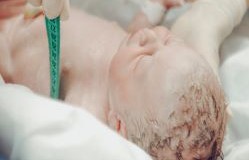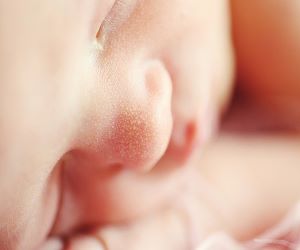New born baby
Congratulations on your newborn! Bringing home your newborn can be an exciting and an overwhelming feeling but at the same time you might feel like you have no idea on what you’re doing on things that you need to ensure before leaving hospital and also care to be taken after going home. The following are the tips that can help even the most nervous first time parents feel confident about caring a newborn.

Handling a newborn
Important factor to be considered to handle a newborn baby
- Wash your hands or use hand sanitizer before handling your baby as they do not have strong immunes built yet.
- Support your baby’s head and neck as their neck bone is not strong yet. Ensure holding your baby in upright position whenever you lift your baby.
Umbilical cord care
The best way to take care of umbilical cord is to keep the stump clean and dry until it falls off on its own. Usually the stump falls off between one or two weeks. The navel will gradually heal. Slight bleeding is normal but any abnormal discharge or pus is seen, talk to your doctor and treat it accordingly.

Fontanelles
The fontanelles are the soft spot on the head. It allows the growth of the baby’s brain and skull during the first year after birth. It should look flat and not swollen or bulging. When you gently run your fingers over the top of your child’s head, the spot should feel soft and flat with a slight downward curve. As the fontanelles are covered by a tough protective membrane, there is no need to worry about it.

Newborn skin
Newborn baby’s skin is very thin and soft. Your baby’s skin matures and develops its own natural protective layer.
Vernix, the white sticky layer that covers baby’s skin in the womb, this layer acts as a natural moisturizer that protects against infection for the first few days.
It is better to bath your baby with plain water rather than using cleansers or skin lotions or medicated wipes for first few months. Once vernix has been absorbed, ask your doctor for the recommended lotions to keep your baby skin hydrated.

Baby’s eyes
New babies can see but their vision is not properly developed. Around 8 weeks of age, most babies can focus on their parents face but not a colored image. By around 3 months, your baby’s vision is fully developed and can focus on everything they see.

Newborn rashes and spots
A newborn baby’s skin is prone to rashes and spots which is very common. They come and go by their own. If you notice some abnormal changes in baby like not taking feed properly, not sleeping or irritable, please check with your doctor so that they tell you how to best treat this common condition, depending on baby’s symptoms. They will also look for eczema which is red, itchy patches on the skin and prescribe the appropriate treatment.

Jaundice in newborn
Jaundice in newborn is a common and harmless condition that causes baby’s skin look in yellow and the whites of the eyes turns yellow. These symptoms usually develop in some babies 2 to 3 days after the birth and get better after 2 weeks by its own without any treatment. Phototherapy (A special type of light from sun shines on the body of the baby) is the best solution for jaundice.
The Takeaway
When the new born baby is in hand, the newbie parents must be aware and get things to know about your newborn like listed above. But the beauty lies on babies who are born knowing how to suck the breastmilk. Babies learn to co-ordinate sucking along with breathing during feeding. They automatically turn towards the nipple and open their mouth even while sleeping.
Knowing things about your newborn makes an intense attachment between you and your baby and also make you to shower your baby with love and affection.
Related articles : Colic in newborn babies



Pingback: Teething Babies - MOMKNOWZ
Pingback: Milestones - Infants (Newborn to 12 Months) - MOMKNOWZ
Pingback: Colic In Babies - MOMKNOWZ
Pingback: Sleep Deprivation For New Mom - MOMKNOWZ